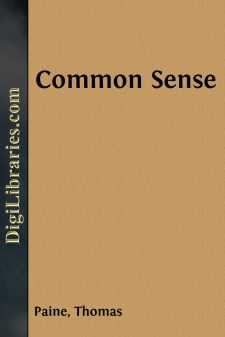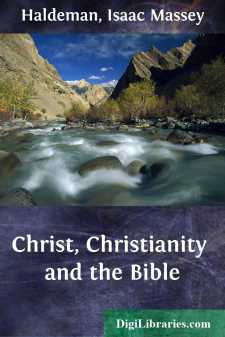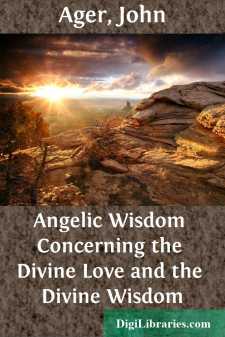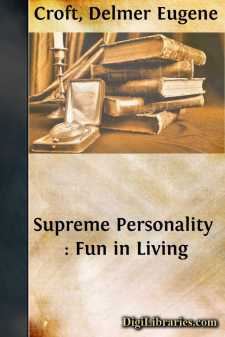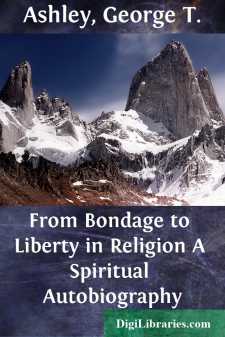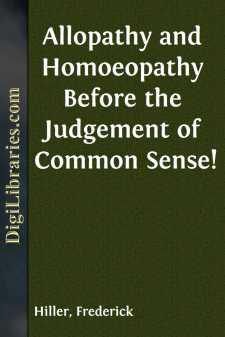Categories
- Antiques & Collectibles 13
- Architecture 36
- Art 48
- Bibles 22
- Biography & Autobiography 813
- Body, Mind & Spirit 142
- Business & Economics 28
- Children's Books 17
- Children's Fiction 14
- Computers 4
- Cooking 94
- Crafts & Hobbies 4
- Drama 346
- Education 46
- Family & Relationships 57
- Fiction 11829
- Games 19
- Gardening 17
- Health & Fitness 34
- History 1377
- House & Home 1
- Humor 147
- Juvenile Fiction 1873
- Juvenile Nonfiction 202
- Language Arts & Disciplines 88
- Law 16
- Literary Collections 686
- Literary Criticism 179
- Mathematics 13
- Medical 41
- Music 40
- Nature 179
- Non-Classifiable 1768
- Performing Arts 7
- Periodicals 1453
- Philosophy 64
- Photography 2
- Poetry 896
- Political Science 203
- Psychology 42
- Reference 154
- Religion 513
- Science 126
- Self-Help 84
- Social Science 81
- Sports & Recreation 34
- Study Aids 3
- Technology & Engineering 59
- Transportation 23
- Travel 463
- True Crime 29
The Form of Perfect Living and Other Prose Treatises
Categories:
Description:
Excerpt
Introduction.
Richard Rolle of Hampole is the earliest in time of our famous English Mystics. Born in or about 1300, he died in 1349, seven years after Mother Julian of Norwich was born. Walter Hilton died in 1392.
An exhaustive account of Rolle's life is given in Vol. ii. of Professor Horstman's Edition of his works, a book unfortunately out of print. The main facts are recorded in a brief "Life" appended to Fr. R. Hugh Benson's A Book of the Love of Jesus. Therefore, it will suffice to say here that Richard Rolle seems to have been born at Thornton, near Pickering, in Yorkshire, in or about 1300; that, finding the atmosphere of Oxford University uncongenial, he left it, and for some four years was supported, as a hermit, by the Dalton Family. By the end of that time, through prayer, contemplation and self-denial, he had attained the three stages of mystical life which he describes as calor, dulcor, canor; (heat, sweetness, melody.) The next period of his life was less easy. Having left the protection of the Daltons, and being without those means of subsistence which are within the reach of priest or monk, this hermit depended for his daily bread on other men's kindness. Not that he was a useless person: apart from the utility of a life of Prayer, he could point to counsel and exhortation given; to the existence of converts consequent upon his ministrations. To add to his difficulties, he preached a doctrine of high pure selflessness with which, the average man, in all times, seems to have no abundant sympathy: and to crown all he was endowed by nature with a sensitive temper. His remarkable gifts forced him into public notice; his cast of thought and his temperament were not calculated to win him ease or popularity. Professor Horstman is peculiarly severe to those among his enemies and detractors "who called themselves followers and disciples of Christ." The insertion here of this painful passage would introduce a jarring note; moreover, the raked embers of past controversy seldom tend to the spiritual improvement of the present. An interesting judgment by Professor Horstman on Rolle's place in mysticism is too long for quotation; but the following sentence may be taken as the pith of it:—"His position as a mystic was mainly the result of the development of scholasticism. The exuberant luxuriant growth of the brain in the system of Scotus called forth the reaction of the heart, and this reaction is embodied in Richard Rolle, who as exclusively represents the side of feeling as Scotus that of reason and logical consequence; either lacking the corrective of the other element."
It is consoling to know that Rolle's last years were passed in peace, in a cell, near a monastery of Cistercian nuns at Hampole, where the nuns supported him, while he acted as their spiritual adviser.
In the book mentioned above, Fr. Hugh Benson has translated some of Richard Rolle's Poems, and certain devotional Meditations. In this Volume, four of his Prose Treatises have been selected from the rest of his works, in the belief that they may supplement those parts of Rolle's writings with which, those who are interested in these phases of thought, are already familiar....



